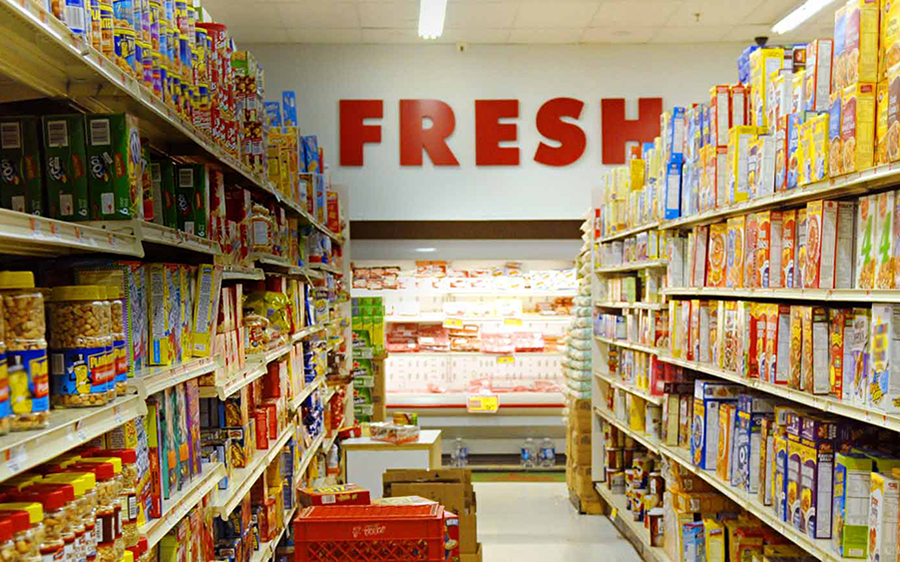
In a detailed discourse at the Nairametrics Industry Economic Outlook on Saturday, focusing on “FMCG: Sector Challenges and Opportunities,” Ogaga Ologe, Finance Director at Cadbury Nigeria Plc, shed light on the persistent challenges faced by the Fast-Moving Consumer Goods (FMCG) sector due to the ongoing devaluation of the naira.
Ologe highlighted the critical practice of regularly adjusting costs and selling prices among FMCG companies to navigate the economic turbulence caused by the weakening naira.
He said:
- “The problem we are seeing now is that you are not just getting cost increases in a month, you are getting cost increases every month because the dollar has moved from N1200 to N1500 just within three days.
- “The concept of price elasticity and planning for the full cost for the year is very important. It is something we do regularly now because of the consistent change in dollar rates.”
Understanding consumer behaviour
Ologe emphasized the significance of understanding consumer behaviour and leveraging price elasticity as essential strategies for FMCG firms aiming to remain competitive and retain their customer base amidst escalating inflation.
He pointed out that the sector is particularly vulnerable to foreign exchange (FX) devaluation impacts, given its heavy reliance on imports for locally unavailable raw materials.
Ologe said:
- “It is important to observe consumer behaviour and determine the price elasticity to remain competitive in the industry.
- “For us in FMCG, I think why we are mostly hit is that while other companies are not solely dependent on export or import into Nigeria, we are dependent on import because not all the materials are available in Nigeria. We are largely impacted by the FX devaluation.
- “Apart from that, you also see the cost of things in the country are rising; transportation costs have significantly increased; diesel cost is on the rise. Apart from FX rates, we are also impacted by other input costs that we use for production.
- “We use price elasticity to determine the volume we produce in a year because you have to plan your production process, plan your cost for the year.”
Ologe stressed the importance of meticulous planning and the application of price elasticity in production decision-making to manage the year’s costs effectively amidst the relentless volatility of the dollar rate. This approach has become a regular practice for FMCG companies striving to adapt to the fast-changing economic environment and maintain their market position.
The insights provided at the Nairametrics event underscore the complex challenges facing the FMCG sector in Nigeria, highlighting the need for strategic planning and flexibility in response to the country’s economic fluctuations.
More Insights
- The Nigerian currency, the Naira, witnessed a further decline in its value against the US Dollar in the official market, ending the week at N1,537.96/$1. This depreciation comes amid ongoing demand pressures and a significant drop in forex turnover, which saw a dramatic 74% fall to $84.10 million, underscoring the currency’s persistent challenges.
- This period of weakening for the Naira coincides with both the official and parallel (black) market rates experiencing devaluation, a situation further exacerbated by a sharp increase in inflation.
- The National Bureau of Statistics (NBS) reported a jump in the inflation rate for January 2024 to 29.90%, up from 28.92% in the preceding month. This marks a substantial rise of 0.98% points in the headline inflation rate compared to December 2023.
- Despite various efforts by the Central Bank of Nigeria (CBN) to stabilize the currency by enhancing the supply of foreign exchange (forex), the economic indicators suggest persistent volatility and uncertainty in the market.
- In a related development, Nigerian Breweries PLC, a leading player in the Fast-Moving Consumer Goods (FMCG) sector and a subsidiary of Heineken NV, issued a “Price Review Notification” to its direct customers in the West Zone. This adjustment is a strategic move to mitigate the impact of the economic headwinds, notably the soaring production costs driven by the rising inflation and the Naira’s depreciation against the dollar.
- The announcement follows a precedent set in August 2023, when the company implemented a significant price increase on select products effective August 10, 2023.
- This action reflects the broader challenges faced by FMCGs in the country. Such challenges include losses on foreign exchange transactions, escalating inflation, and high interest rates, which continue to test the resilience of businesses operating within this volatile economic landscape.









